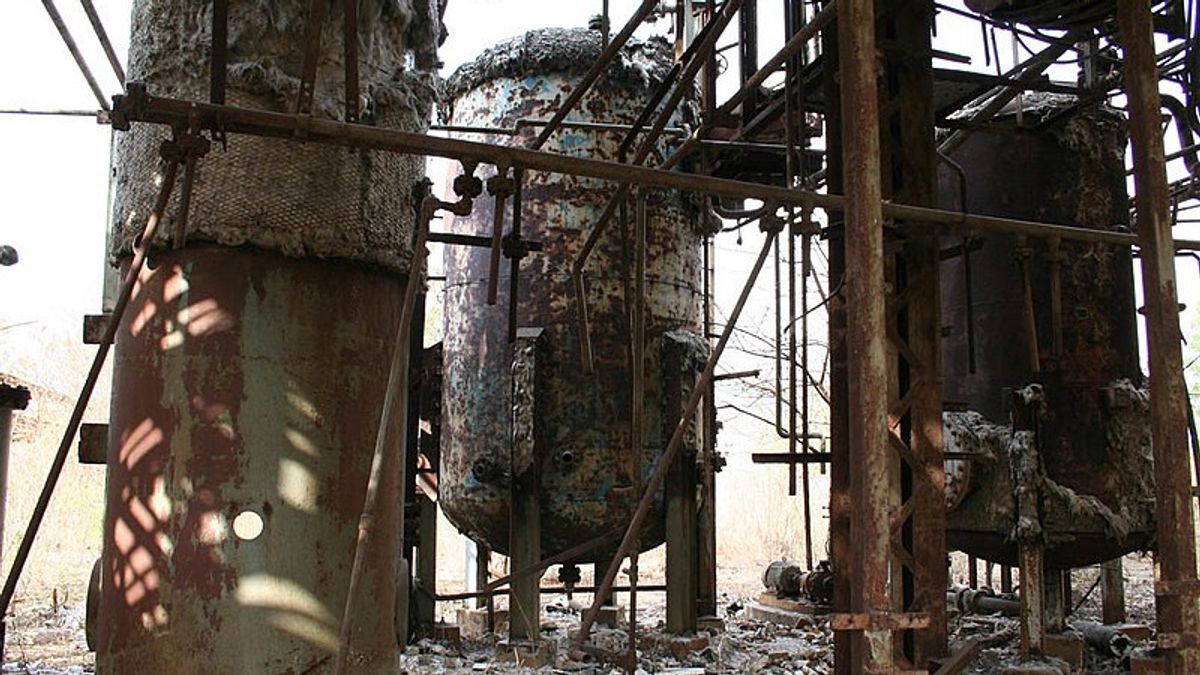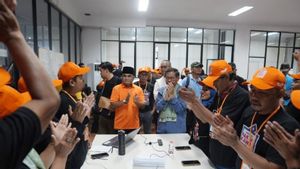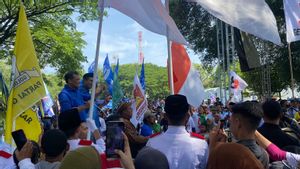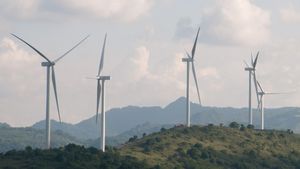JAKARTA - On December 3, 1984, poison gas leaked from a pesticide factory near the city of Bhopal, India. The leak caused thousands of people to die. The accident occurred in the early hours of the morning at the United States (US) Union Carbide Pesticide Factory which is located 4.8 kilometers from the city of Bhopal.
Union Carbide's Managing Director in India, YP Gokhale said methyl isocyanate (MIC) gas came out when a valve in the plant's underground storage tank burst. This caused a cloud of deadly gas to spread across Bhopal's skies, which are home to more than 900,000 people, many of whom live in slum areas.
Quoting the BBC, Thursday, December 3, chaos and panic erupted in the city and its surroundings as tens of thousands of people tried to flee. More than 20,000 people need hospital treatment for a variety of symptoms including swollen eyes, foamy mouth and difficulty breathing. Thousands of dead cats, dogs, cows and birds littered the streets. The city morgues filled up fast.
"We were choking and our eyes were burning. We could barely see our way through the fog, and sirens were blaring," said one resident of Bhopal, Ahmed Khan.
"Mothers don't know that their children have died, children don't know that their mothers have died and men don't know that their entire family has died."
The Union Carbide factory was closed immediately after the accident and three senior staff members were arrested. Medical and scientific experts are dispatched to the scene and the Indian government orders a judicial investigation.
The death toll is estimated at between 15,000 and 20,000. About half a million survivors suffer from respiratory problems, eye irritation to blindness, and other illnesses caused by exposure to toxic gases.
Many of them were compensated several hundred dollars. An investigation later determined that the factory had substandard operating and safety procedures. The shortage of officers caused disaster. In 1998, the former factory site was handed over to the State of Madhya Pradesh.
Disaster from the startThe Union Carbide plant in Bhopal was a disaster from the start. The company set up a pesticide factory there in the 1970s, thinking that India represented a large untapped market for pest control products.
But sales never met the company's expectations. Indian farmers, struggling to cope with drought and floods have no money to buy pesticides from Union Carbide. A plant that never reached full capacity proved to be at a disadvantage and ceased active production in the early 1980s.
However, large quantities of hazardous chemicals remain, among them three tanks holding more than 60 tonnes of MIC. Even though MIC is a highly reactive and lethal gas, Union Carbide's complex plant safety system was left to ruin.
The management reason appears to be that the factory has stopped all production. Every safety system that had been installed to prevent MIC leaks was ultimately found to be malfunctioning.
At the beginning of the 21st century, more than 400 tonnes of industrial waste was still on site. Despite constant protests and litigation efforts, neither the Dow Chemical Company, which bought Union Carbide Corporation in 2001, nor the Indian government, did not clean the area properly.
Soil and water pollution in the factory area is the cause of chronic health problems and the high incidence of birth defects among residents of the area. In 2004, India's Supreme Court ordered the state to provide clean drinking water to Bhopal residents due to groundwater contamination.
In 2010, several former executives of Union Carbide's subsidiary in India, who were all Indian nationals, were convicted by the Bhopal court of negligence in the disaster.
The English, Chinese, Japanese, Arabic, and French versions are automatically generated by the AI. So there may still be inaccuracies in translating, please always see Indonesian as our main language. (system supported by DigitalSiber.id)









